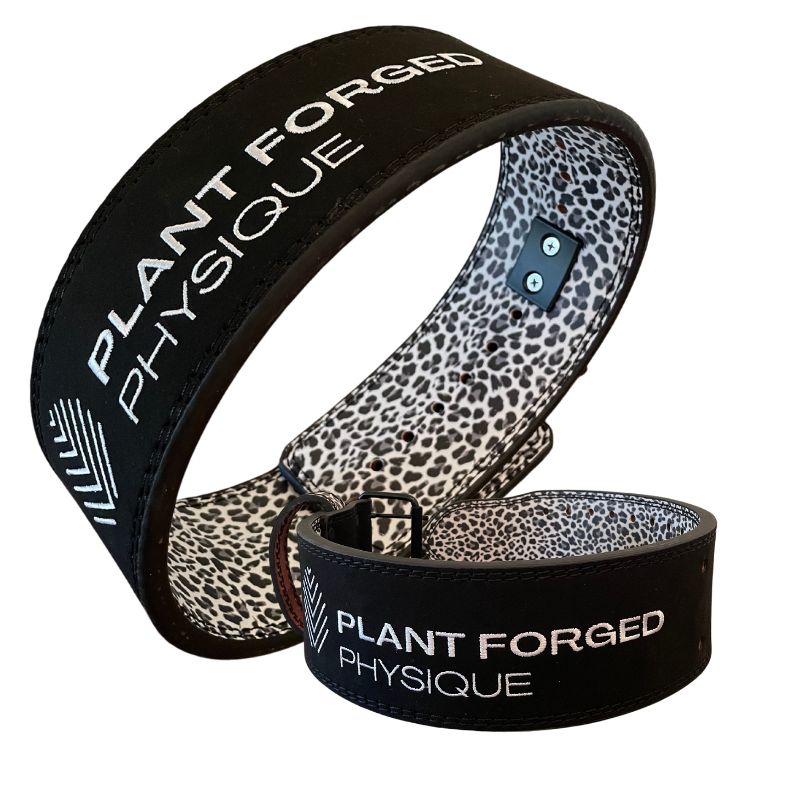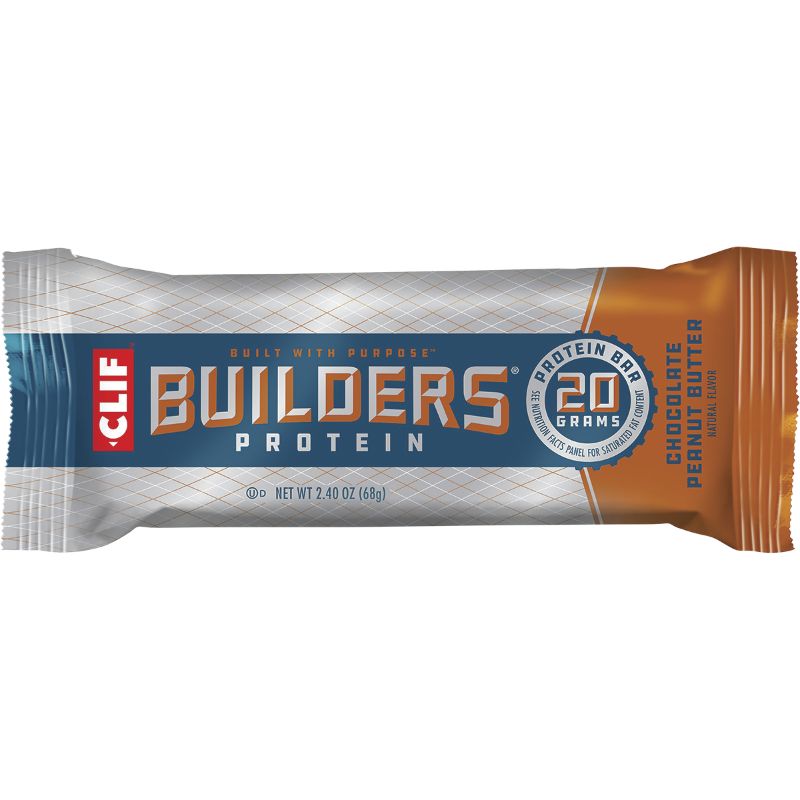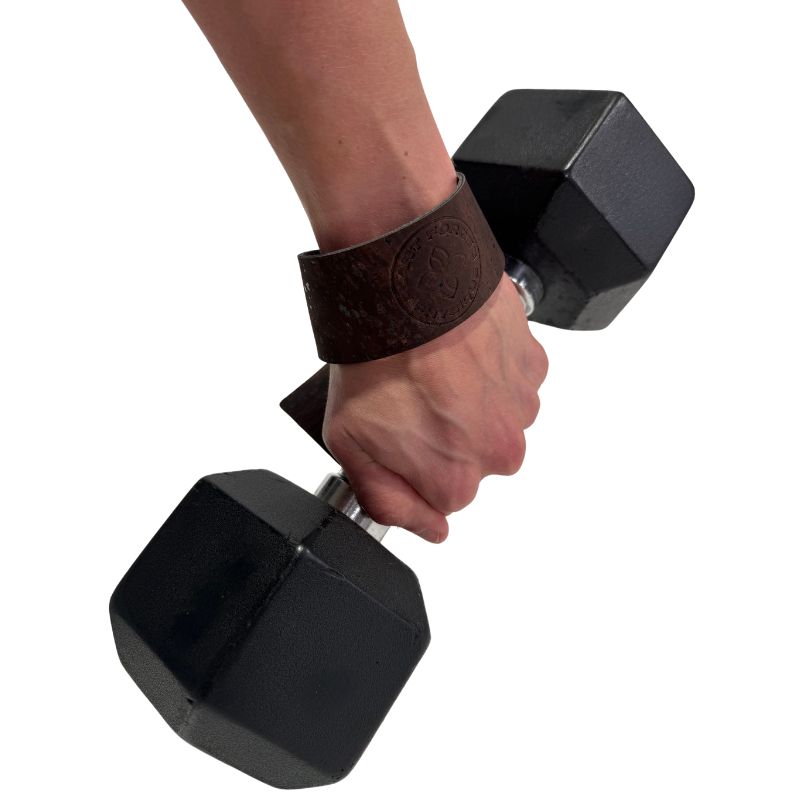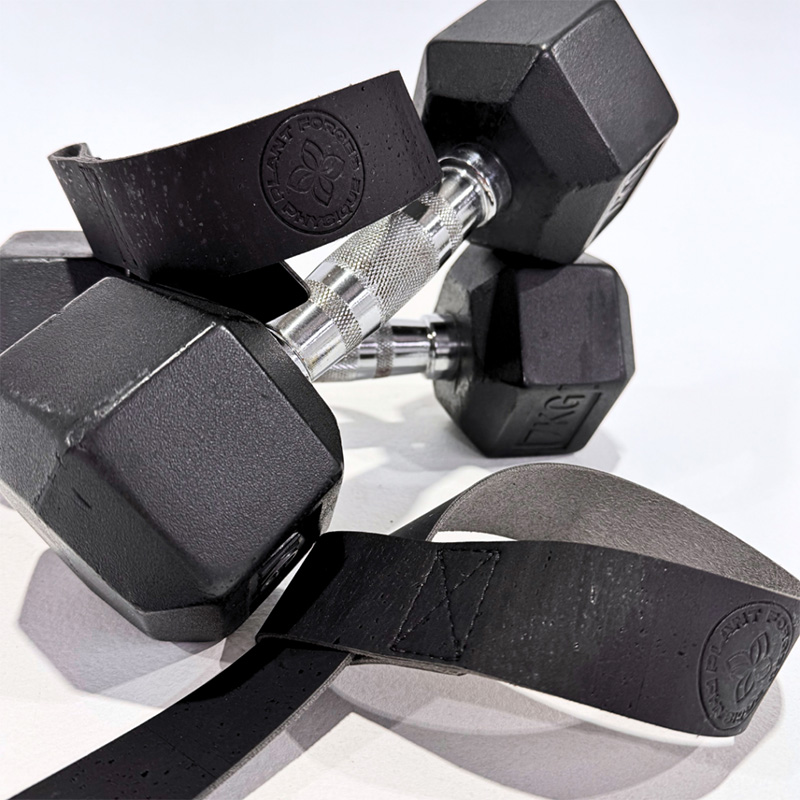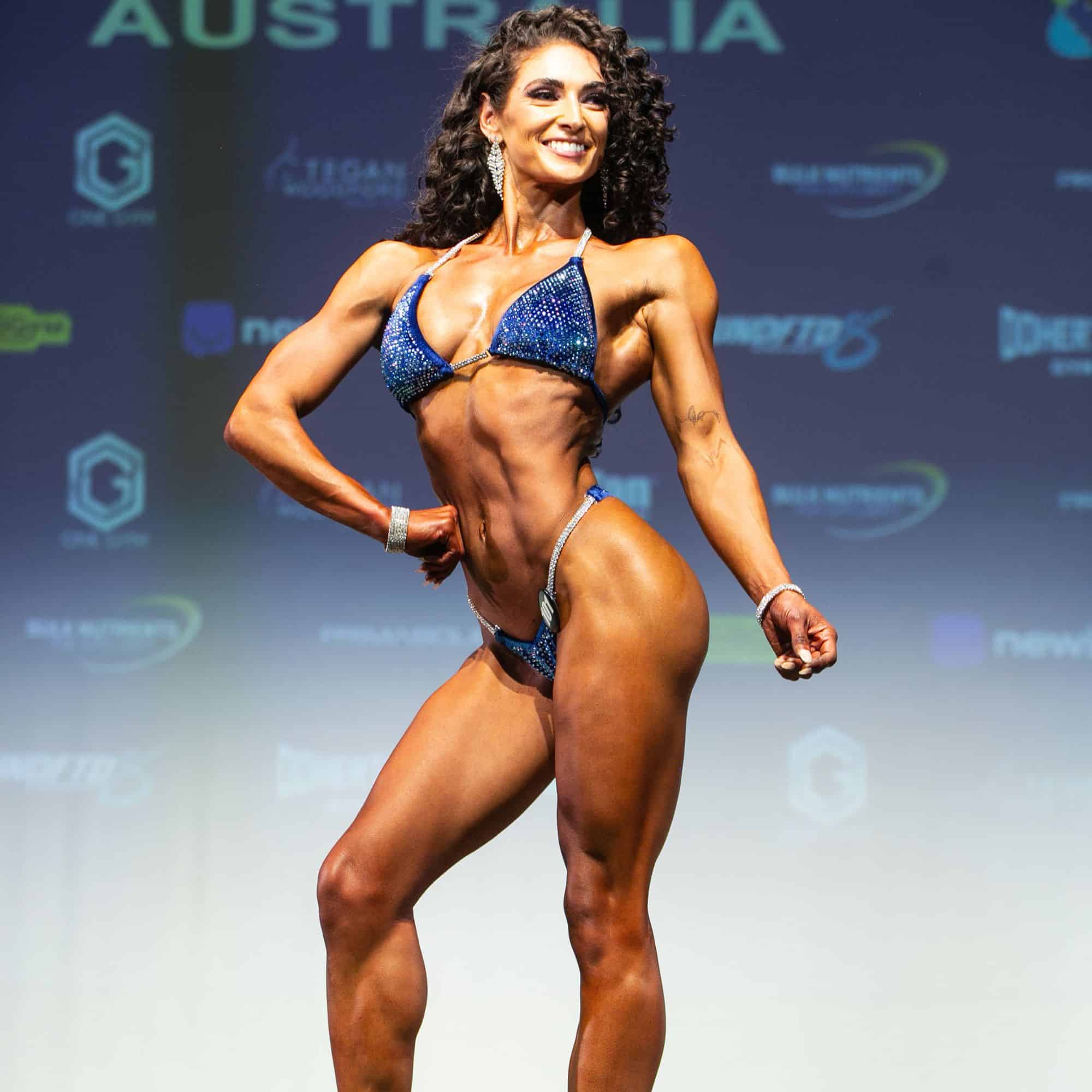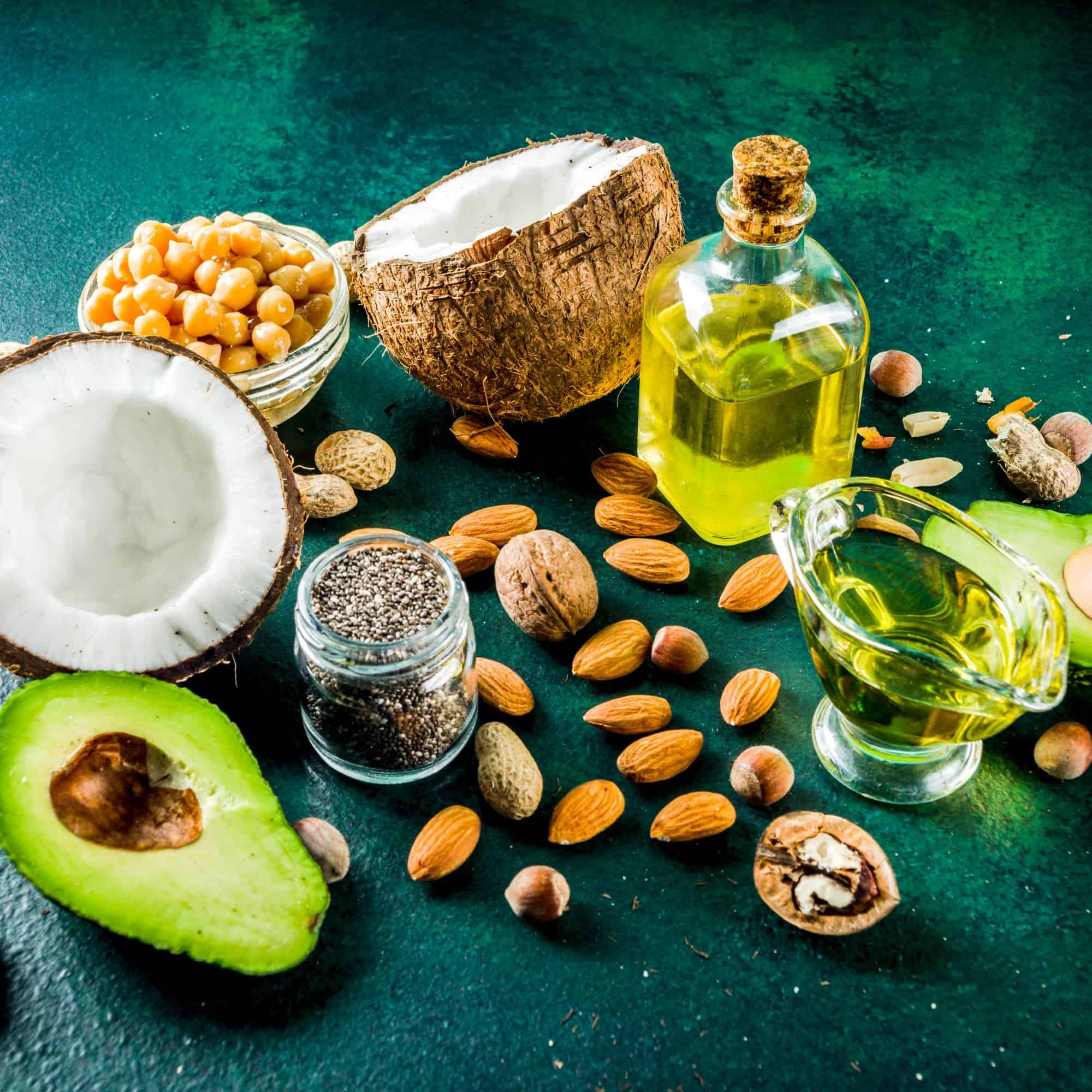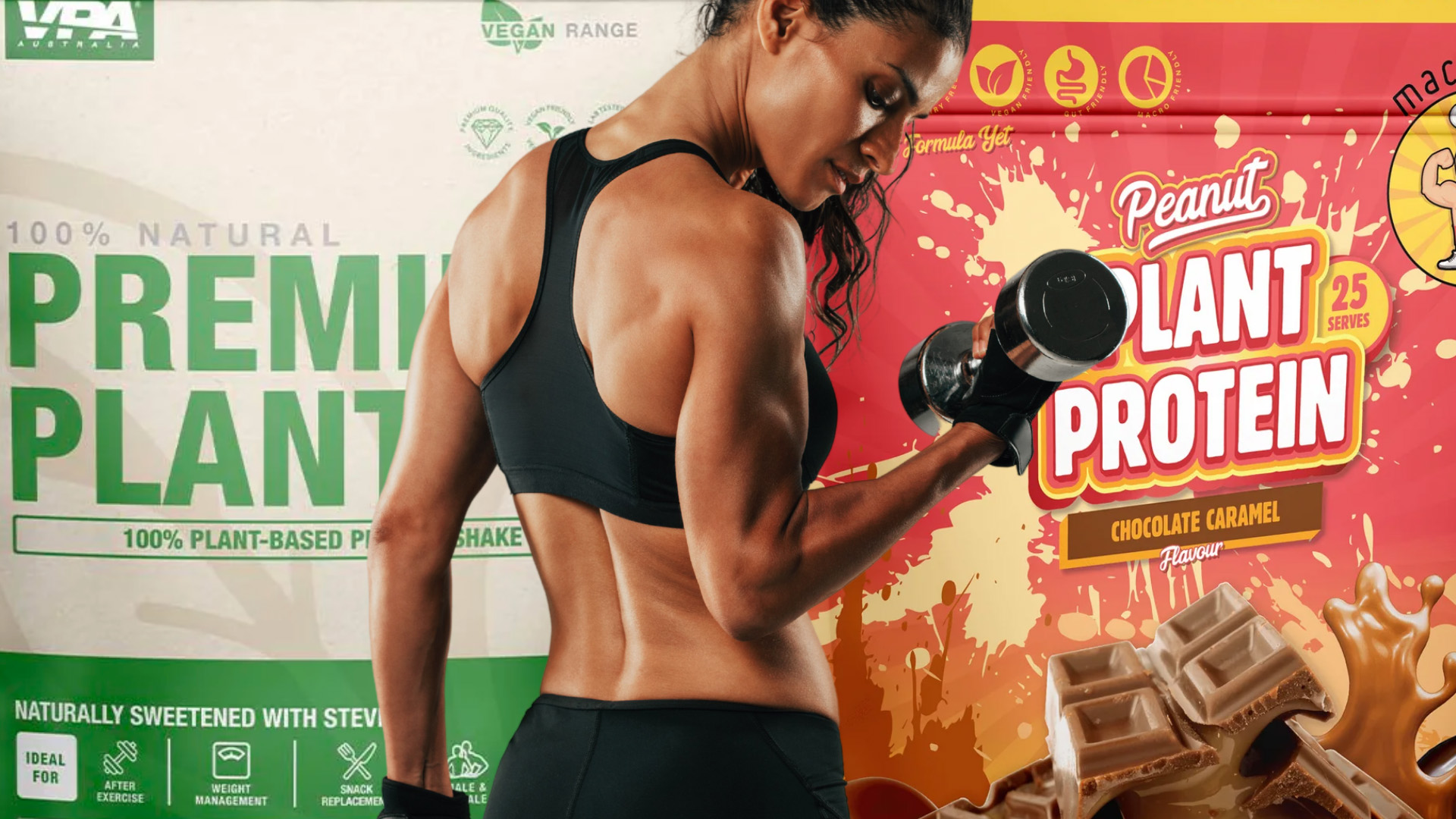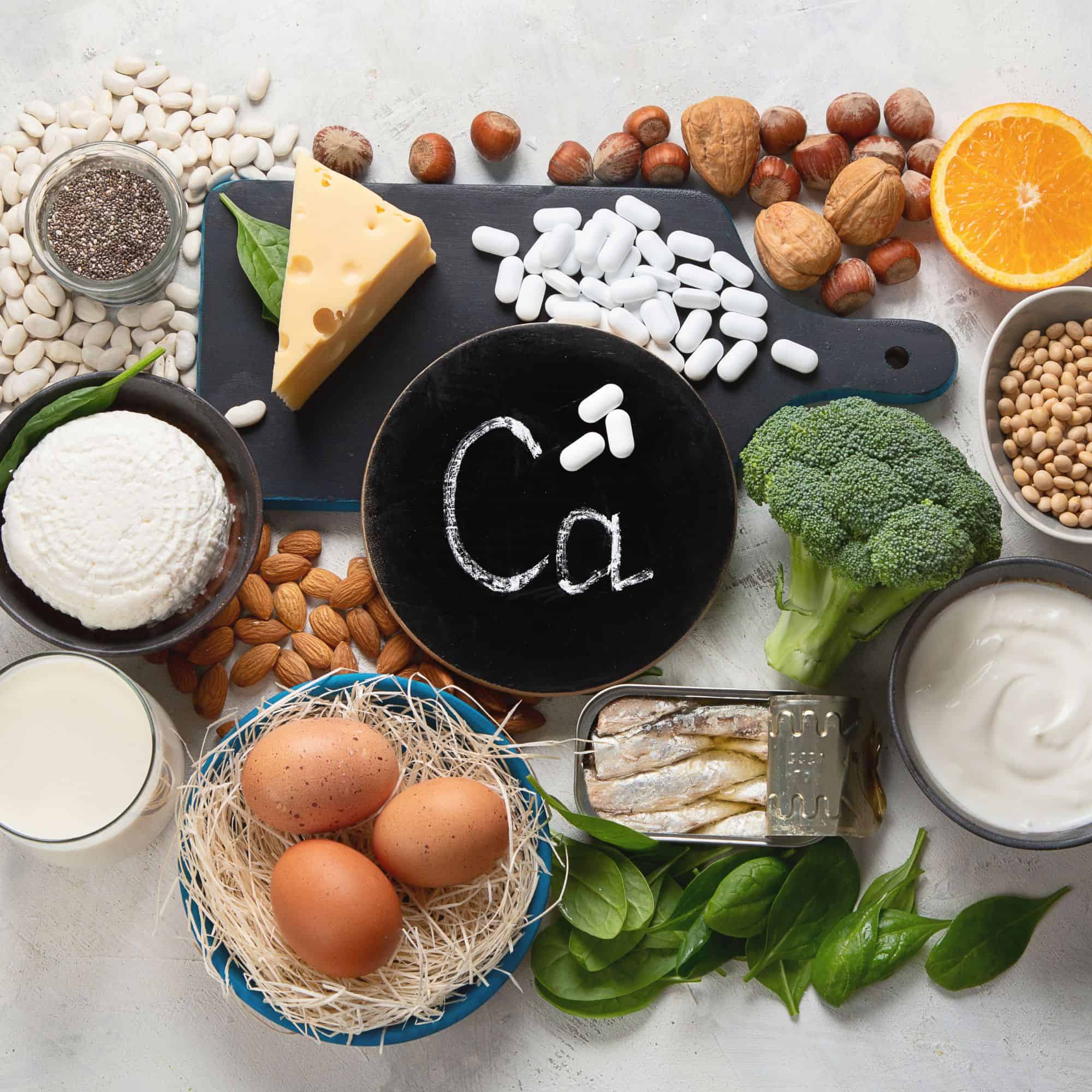
Leucine: the missing piece to the vegan muscle-building puzzle
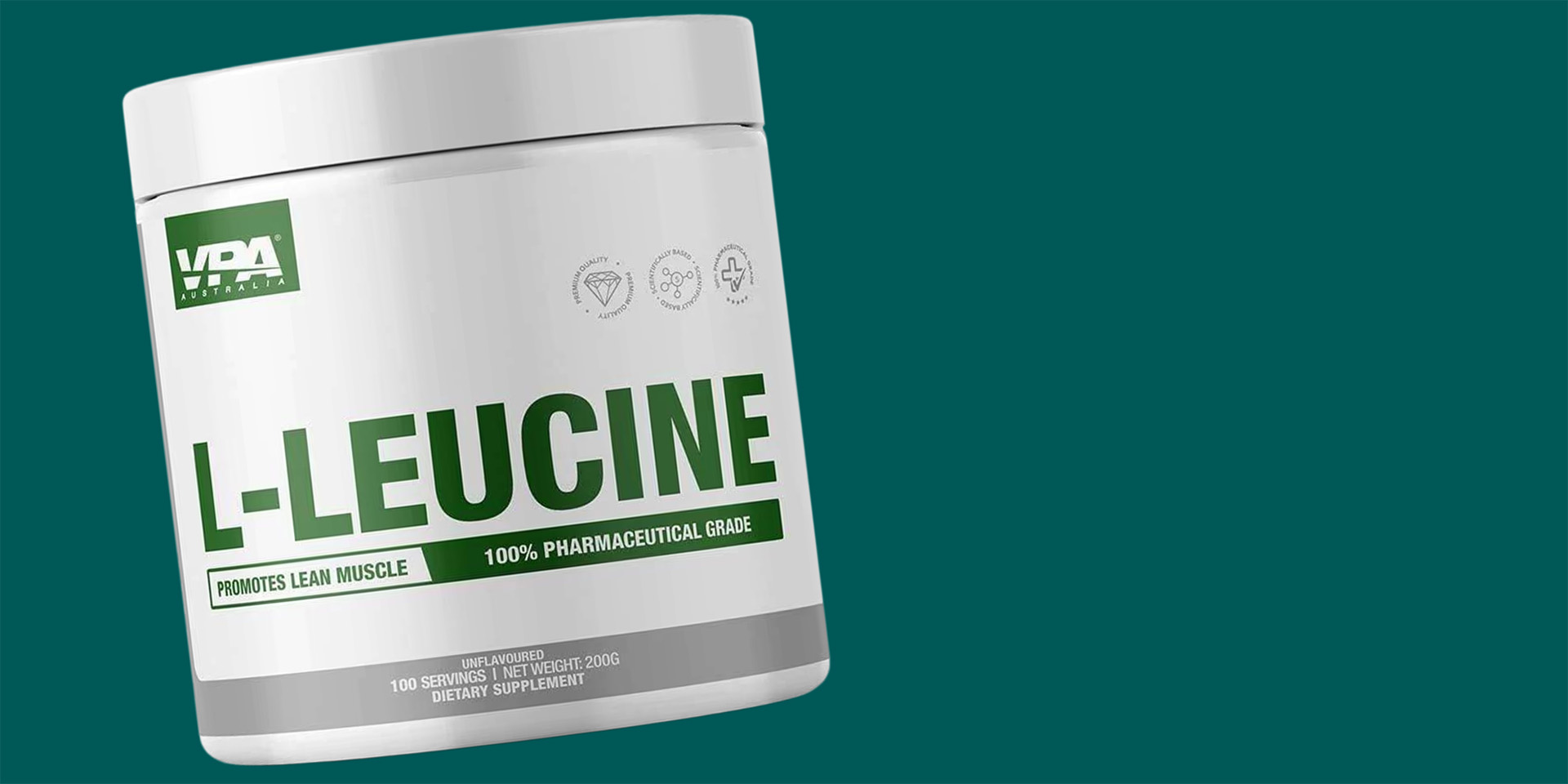
Vegan and plant-based diets are continuing to grow in interest and popularity in both people looking to build muscle and become stronger. And it’s no secret that a vegan, vegetarian or plant-based diet brings a set of distinct considerations.
One of which, is Leucine – which isn’t a heavily talking about topic.
What is Leucine?
Leucine is one of nine essential amino acids that our body must obtain from food. It is most well known for its muscle-building properties – specifically as a catalyst for muscle protein synthesis. So when it comes to growing muscle, if you don’t have enough leucine it’s like trying to start a car without a key.
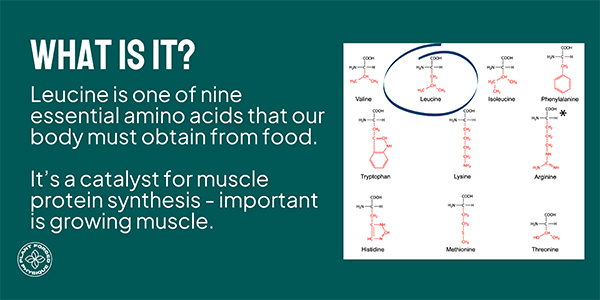
Leucine is most prominently found in animal-products, like chicken, beef, pork, tuna, dairy and eggs. So for non-vegan bodybuilders and strength athletes, leucine isn’t something that they need to focus on. Consequently, leucine is not a well-known topic because getting enough leucine happens easily for meat-eaters.
But vegetarians and vegans can have a hard time getting consistent and adequate doses of leucine to optimise their muscle growth, repair, and recovery.
Frequency & dosage is key
To optimise muscle growth, you want to eat an adequate amount of protein each day split relatively equally across 3-6 meals, with 2.5-3g of leucine in each of those meals.
But unlike animal proteins, the challenge is that plant proteins often have less than 1g of Leucine.
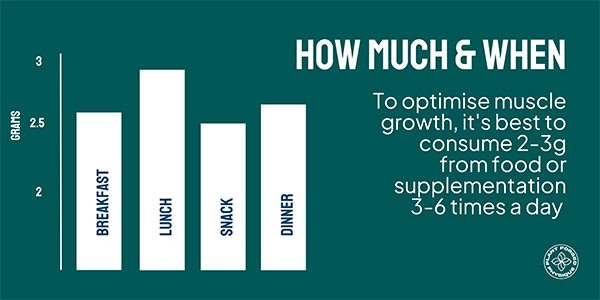
So where do you get it?
Thankfully, there are a few exceptions. Primarily, these are soy-foods and some legumes which have slightly higher quantities of leucine:
- 150g of firm tofu has roughly 2.5g
- 50g of raw textured vegetable protein has 2g
- 1 cup of cooked soy, haricot, or adzuki beans has 1-1.6g
- 40g of Soy Protein Isolate has 3g
- 100g of Vital Wheat Gluten has 5.4-6.8g
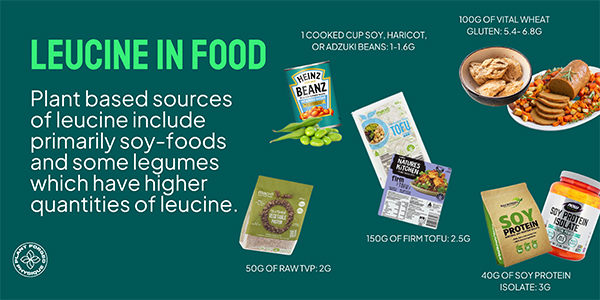
Include soy-foods regularly in your diet each day to ensure you’re consuming leucine regularly.
Supplementing with Leucine
But the reality is that most people don’t consume soy in every meal. This makes it difficult for vegans who are trying to build muscle to get enough leucine and frequently enough to optimise their muscle growth.
A solution is to supplement with 2-3g of leucine powder at each main meal that doesn’t contain soy. This could be useful primarily for vegan athletes and those wanting to make sure they’re getting as much muscle growth as possible.
We recommend VPA’s Leucine to our clients as their products are third-party lab tested and are certified by Informed Sport the world leader in supplement quality assurance.
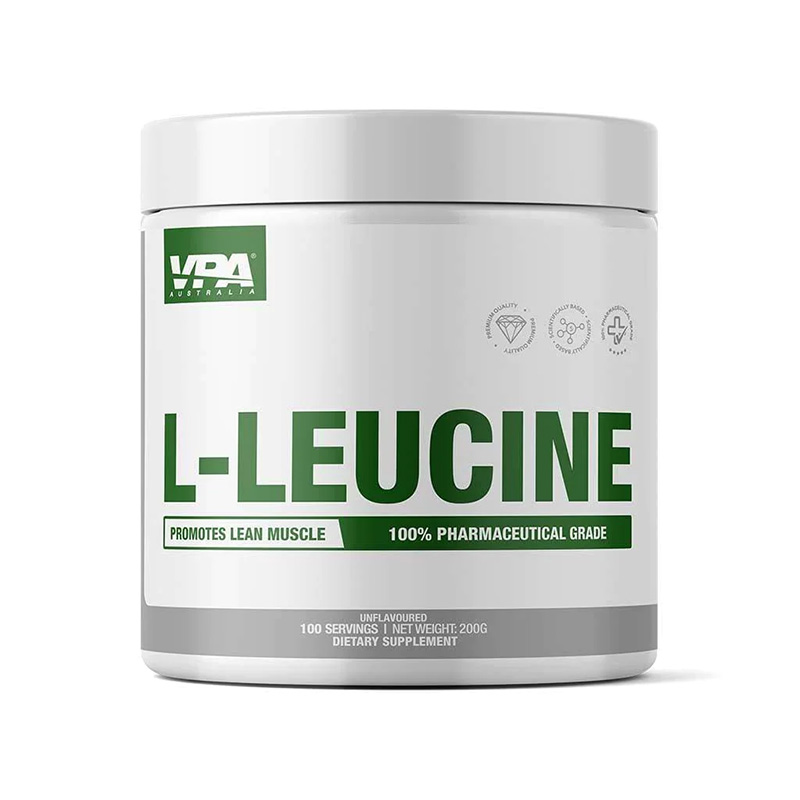
shop
VPA Leucine
$30.99
The missing piece in the plant-based muscle building puzzle. Accelerate strength, muscle growth and recovery with this essential amino acid.
